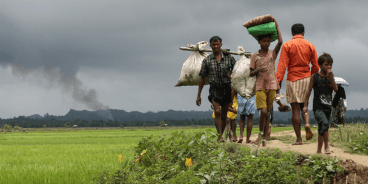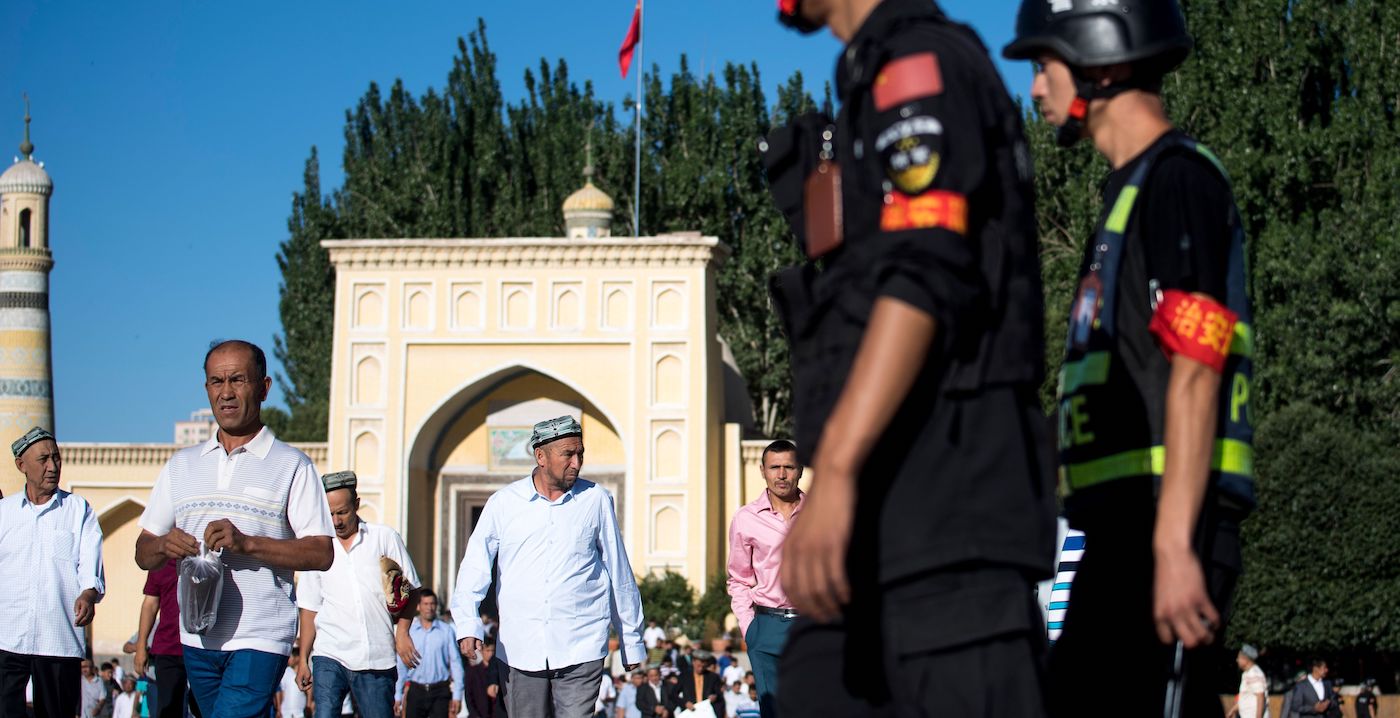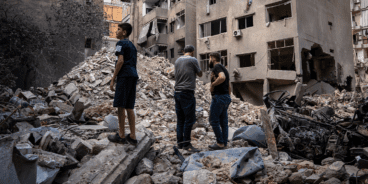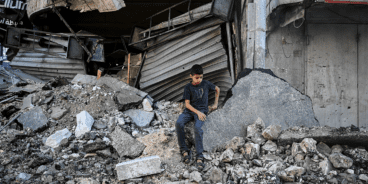

Open Letter to the Foreign Ministers of Member and Observer States of the UN Human Rights Council to discuss human rights situation in Xinjiang
This letter is also available in French and Spanish.
Re: Proposed Human Rights Council Decision on Xinjiang
Dear Minister,
We, the undersigned human rights organizations, are writing to urge you to support a decision at the current session of the United Nations Human Rights Council enabling the Council to discuss the recent report by the UN High Commissioner for Human Rights on the human rights situation in the Xinjiang Uyghur Autonomous Region of China.
Meticulous and detailed, the High Commissioner’s report lays bare a systematic campaign by the Chinese government to target Uyghurs and other predominantly Muslim minorities for the peaceful exercise of their rights to freedom of religion and expression and to enjoy their own culture. Strikingly, in addition to other sources, the report relies extensively upon the Chinese government’s own policy documents to demonstrate that the authorities’ sweeping crackdown on Uyghurs and other Muslim minorities is discriminatory in both purpose and effect.
Notably, the High Commissioner’s report concludes that the extent of these violations may constitute international crimes, “in particular crimes against humanity,” requiring “urgent attention by the United Nations intergovernmental bodies and human rights system.” Dozens of UN Special Procedure mandates issued a joint statement reinforcing these concerns and calling on the Human Rights Council to urgently address the human rights situation in China.
High Commissioner’s Findings
The report details Chinese authorities’ religious profiling of Uyghurs and other Muslim minorities in Xinjiang as “extremists,” based on indicia such as “wearing hijabs and ‘abnormal’ beards,” “closing restaurants during Ramadan,” “giving one’s child a Muslim name,” and other conduct that the High Commissioner described as “nothing more or less than personal choice in the practice of Islamic religious beliefs and/or legitimate expression of opinion.”
The report sets out how those deemed “at risk of extremism” are subject to serious violations by the authorities, including arbitrary detention, torture, involuntary medical treatment, forced labor, family separation, interference with reproductive rights, as well as intimidation, threats and reprisals.
The authorities have transferred large numbers of Uyghurs and other Muslim minorities to detention centers for indefinite periods without charge and without any effective means to challenge their detention. The authorities euphemistically refer to these as “vocational education and training centres,” but refused to provide the Office of the High Commissioner for Human Rights with any curriculum for this so-called “education.” Detainees were prohibited from practicing their religion, praying, or speaking their language. Instead, there was a strong emphasis on “political teachings” and rehabilitation through self-criticism. As one former detainee said, “we were forced to sing patriotic song after patriotic song every day, as loud as possible and until it hurts, until our faces became red and our veins appeared on our face.”
Detainees also reported being subject to torture and other ill-treatment, including “being beaten with batons, including electric batons while strapped in a so-called ‘tiger chair’; being subjected to interrogation with water being poured in their faces; prolonged solitary confinement; and being forced to sit motionless on stools for prolonged periods of time.” Many reported being shackled, constant hunger and weight loss, and being forced to take white pills, which made them drowsy.
Ahead of visits by foreign delegations, former detainees indicated they were “explicitly told by guards to be positive about their experience,” fearing that their detention would be further prolonged or that family members would face reprisals if they failed to comply.
The report also details a broader program to suppress Uyghur language, culture, religion and identity outside of detention centers, noting that “alongside the increasing restrictions on expressions of Muslim religious practice are recurring reports of the destruction of Islamic religious sites, such as mosques, shrines and cemeteries.” “Homestay” programs, involuntary in nature, placed government officials in many Uyghur homes, where families reported being under constant surveillance and “not allowed to pray or speak their own language.” Even children are not safe: Chinese authorities have reportedly placed the children of those detained in state-run child welfare institutions and boarding schools without parental consent, and with similar restrictions on their ability to practice their religion or speak their language.
Proposed UN Human Rights Council Resolution
The proposed resolution is very modest in scope, merely calling for the High Commissioner’s report to be discussed at the Human Rights Council. It takes no position on the issues addressed, takes no position with respect to China, and does not prejudge the outcome of such a discussion. As a human rights organization, we would have preferred that a resolution go much further, heeding the call by some 50 UN Special Procedures and hundreds of nongovernmental organizations from more than 60 countries for an international mechanism to monitor and report on the situation on an ongoing basis. A resolution to discuss the report is the bare minimum response that can be credibly expected from the Human Rights Council when faced with a report of this magnitude.
Despite China’s stated commitment to “dialogue,” it has made every effort to suppress the report and prevent discussion of its contents. Such an approach, if it prevailed, would undermine the institutional integrity of the Human Rights Council by placing the human rights situation in one country alone uniquely beyond international scrutiny. This would only empower China to pursue its campaign of repression against Uyghurs and other predominantly Muslim minorities with impunity.
We trust we can count on your government’s support for the proposed resolution.
Sincerely,
- ACAT Belgium
- ACAT Germany
- ACAT UK
- Alliance des Avocats pour les Droits de l’Homme
- Article 19
- Centro de Documentación en Derechos Humanos “Segundo Montes Mozo SJ” (SMM)
- Citizens’ Alliance for North Korean Human Rights
- CIVICUS: World Alliance for Citizen Participation
- Coalition for Genocide Response
- Comité pour la Liberté à Hong-Kong
- Coordination des Associations et des Particuliers pour la Liberté de Conscience
- DefendDefenders (East and Horn of Africa Human Rights Defenders Project)
- Defense Forum Foundation
- East Turkistan Australian Association
- European Union of Jewish Students
- EXCUBITUS Derechos Humanos
- Families of the Disappeared
- Federal Association of Vietnamese Refugees in the Federal Republic of Germany
- Global Centre for the Responsibility to Protect
- Human Asia
- Human Rights Defenders Network-SL
- Human Rights Watch
- Humanists International
- Humanitarian China
- Institute for Asian Democracy
- International Christian Concern
- International Coalition to End Transplant Abuse in China (ETAC)
- International Commission of Jurists
- International Service for Human Rights
- Jacob Blaustein Institute for the Advancement of Human Rights
- Judicial Reform Foundation
- Justice For North Korea
- Lesbian and Gay Association of Liberia (LEGAL)
- LGBT+ initiative group “Revers”
- Montreal Institute for Genocide and Human Rights Studies
- Network of the independent Commission for Human rights in North Africa CIDH AFRICA
- NK Watch
- Northern California Hong Kong Club
- People for Successful Corean Reunification- PSCORE
- Persatuan Sahabat Wanita Selangor
- Planet Ally
- René Cassin, the Jewish voice for human rights
- Reporters Without Borders (RSF)
- Réseau Ouest Africain des Défenseurs des Droits Humains/West African Human Rights Defenders’ Network
- Safeguard Defenders
- Scholars at Risk
- The Rights Practice
- Transitional Justice Working Group (TJWG)
- Uyghur Association of Victoria, Australia
- Viet Tan
- Vietnam Human Rights Network
- Women’s Action Network
- World Uyghur Congress
- YUHU Indonesia
Related Content


Atrocity Alert No. 414: Lebanon, Ethiopia and the UN Human Rights Council
